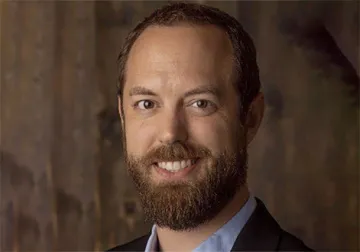Planning and Sustainable Built Environments Professor Ladd Keith Discusses Heat’s Inequitable Impact on Low-Income and Communities of Color in The Washington Post

“Heat is the number-one weather-related killer,” says Ladd Keith in The Washington Post article, “Heat and Smog Hit Low-Income Communities and People of Color Hardest, Scientists Say,” published on May 25, 2021.

Ladd Keith, University of Arizona Associate Professor of Planning and Sustainable Built Environments.
Keith, an assistant professor of planning and sustainable built environments in the College of Architecture, Planning and Landscape Architecture at the University of Arizona, reviewed two new studies that serve as the focus of the article, one published in Nature Communications and the other appearing in the Proceedings of the National Academy of Sciences.
The first concludes that “in all but six of the largest 175 U.S. cities it examined, people of color had higher exposures to heat than White residents,” says the article. The second “found that the lower a ZIP code’s median income, the higher the chance of hospitalization for unscheduled respiratory issues” on days when heat waves coincided with elevated pollution levels in California.
Keith notes that while heat doesn’t receive the media exposure of hurricanes or sea level rise, it is significant, particularly—as the studies demonstrate—for poor and minority neighborhoods.
While some cities are making progress—such as New York City in mapping heat inequity and Miami in appointing a “chief heat officer,” says the article—the problem of heat’s impact on poor and minority communities is rising with the temperatures across the U.S.
“Bolstering evidence in that area is really important,” says Keith, pointing to the need for greater visibility, analysis and preparedness across our communities.
Keith, who joined CAPLA in 2009, is an interdisciplinary researcher working at the intersection of urban planning and climate change to create more sustainable and resilient cities. He has over a decade of experience working with diverse stakeholders to solve complex urban challenges in cities across the U.S. His current research explores urban heat governance and how cities can increase heat resilience through the mitigation and management of heat. In addition to founding and leading CAPLA’s Bachelor of Science in Sustainable Built Environments, Keith teaches public participation and dispute resolution and climate action planning.
Header photo of heat and smog in Los Angeles by David Mark, courtesy Pixabay.



